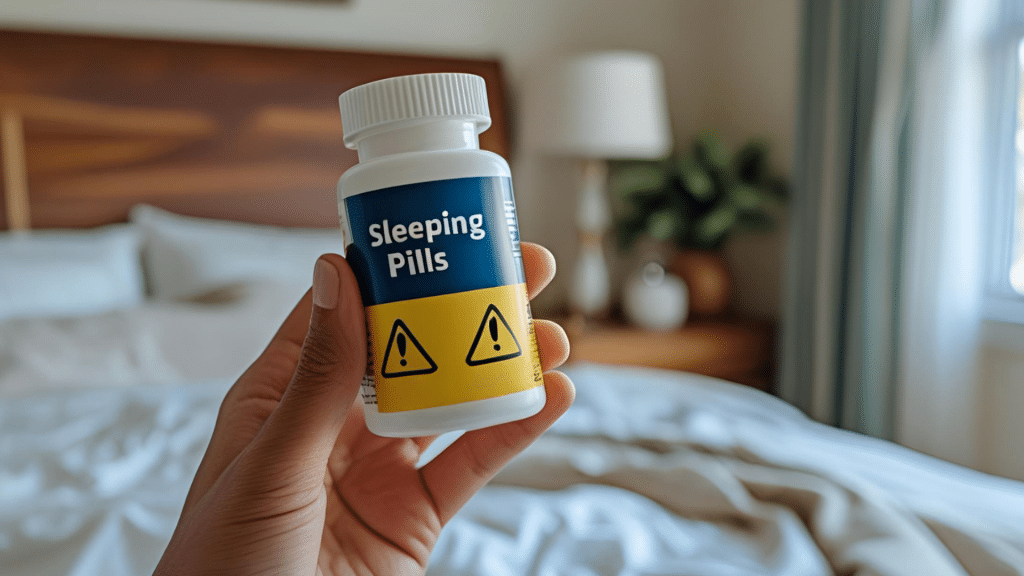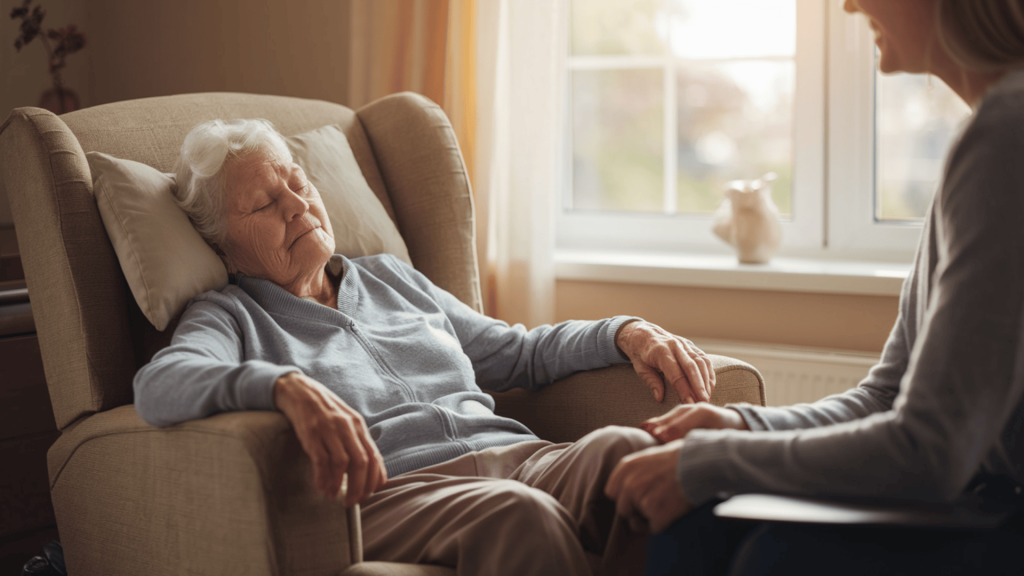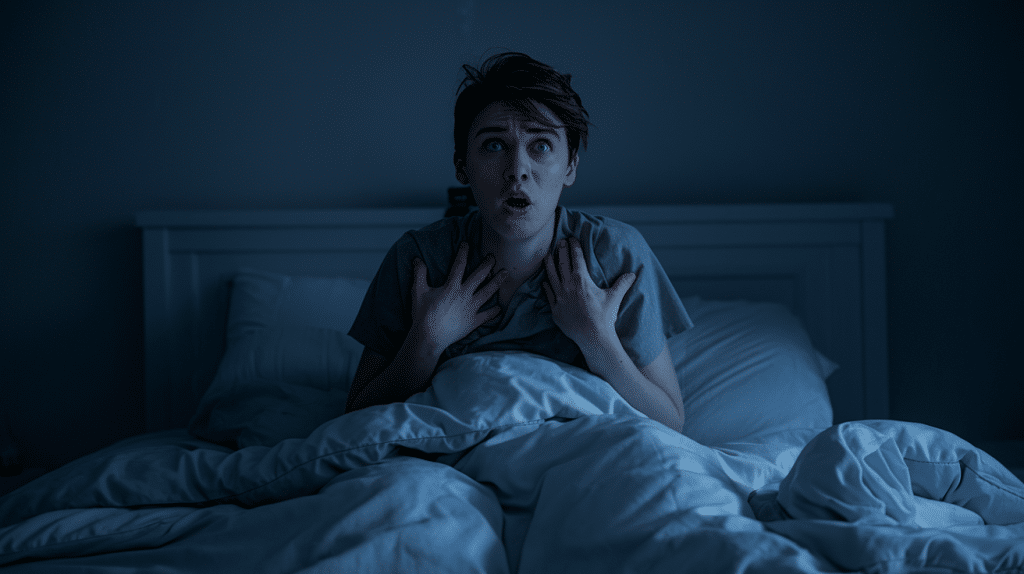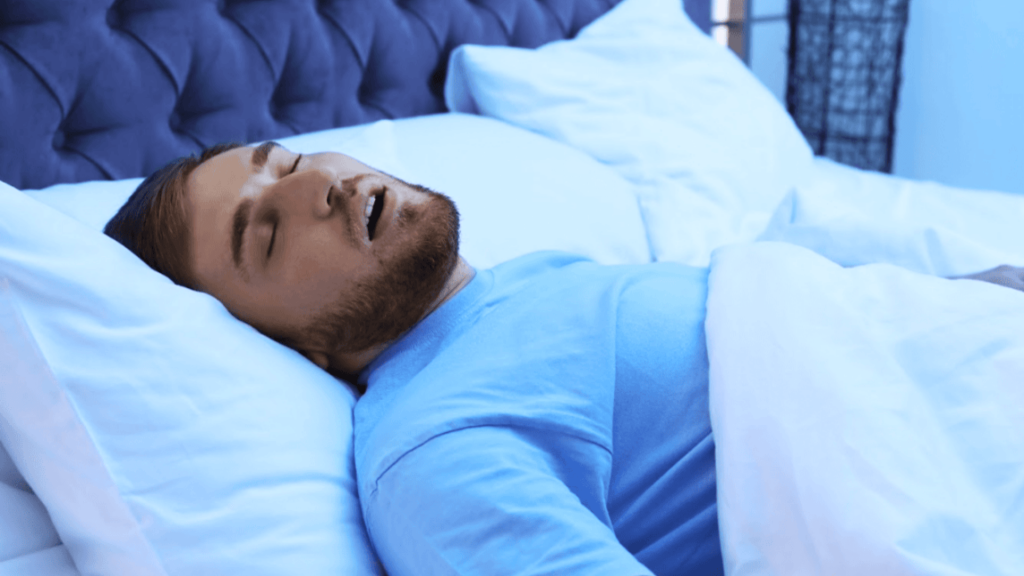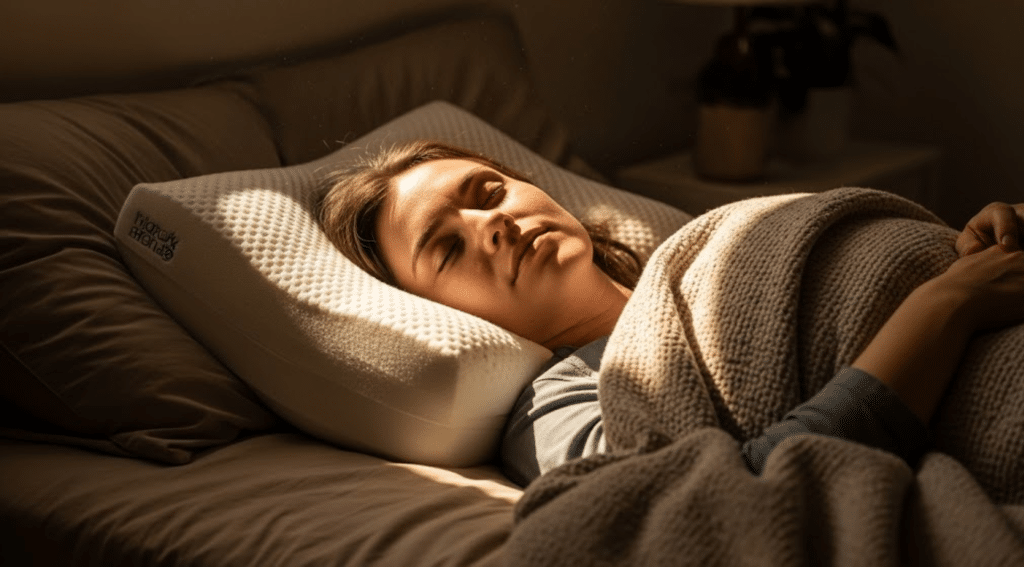If you’ve ever had trouble falling asleep and thought about taking something to help, you’re one of many. Many people turn to sleep aids hoping for a quick fix, but do you really know which sleeping pill is dangerous and why?
Today, I’m breaking it all down for you. I’ll walk you through different types of sleeping pills, what risks they carry, how much is too much, and what safer options you can try instead.
By the end, you’ll have a clearer picture of what’s safe, what to avoid, and how to make better choices for your sleep. Let’s get started and take the guesswork out of it.
Disclaimer: The information provided in this blog is for educational and informational purposes only and is not intended as a substitute for professional medical advice, diagnosis, or treatment. Always consult a licensed healthcare provider.
Understanding Sleeping Pills and Their Risks
Sleeping pills are commonly used to help with sleep disorders, but they come with potential risks.
Prescription sleeping pills, including benzodiazepines (e.g., lorazepam) and non-benzodiazepines (e.g., zolpidem), can be effective but may lead to dependence, cognitive impairment, and increased risks when combined with other substances.
Over-the-counter sleep aids, such as antihistamine-based products like diphenhydramine, are widely available and often used for short-term sleep relief. However, they can cause side effects like drowsiness, memory issues, and irregular heartbeat.
Always use caution and consult a healthcare provider before use.
Which Sleeping Pill is Dangerous? Types and Risks Explained
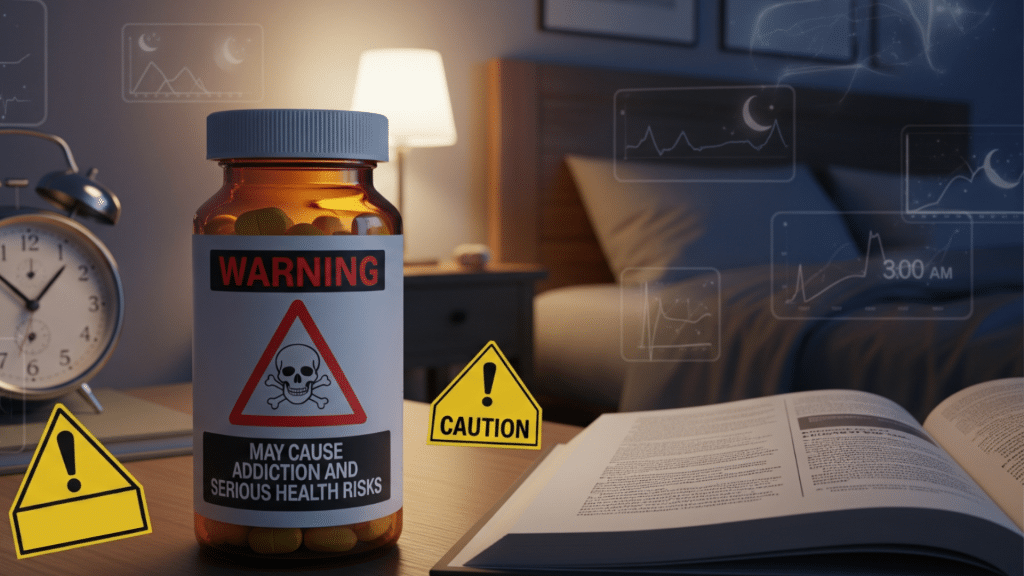
Different types of sleeping pills come with unique risks, including addiction, cognitive impairment, and dangerous behaviors when misused. Here are some common types you’ll come across:
Benzodiazepines (e.g., lorazepam, temazepam)
Benzodiazepines are commonly prescribed for sleep issues but carry significant risks of dependence, cognitive impairment, and overdose. It’s crucial to understand their dangers.
- Addiction Risks: Benzodiazepines can lead to dependency, where users may develop a tolerance over time, requiring higher doses. Withdrawal symptoms can be severe, including anxiety, irritability, and seizures.
- Cognitive and Physical Side Effects: These medications may cause memory impairment, daytime sleepiness, and coordination problems, leading to difficulties in daily functioning and an increased risk of accidents.
- Overdose Risks: Combining benzodiazepines with opioids, alcohol, or other sedatives greatly increases the risk of overdose, which can lead to respiratory depression, unconsciousness, and even death.
Non-Benzodiazepines (e.g., zolpidem, eszopiclone)
Non-benzodiazepine medications are prescribed to help with sleep and are considered safer, though they come with their own set of risks.
- Sleepwalking and Dangerous: Non-benzodiazepine sleep aids may cause sleepwalking, sleep-driving, and other parasomnias, which can result in dangerous behaviors during sleep, leading to potential harm or injury.
- Next-Day Impairment: These medications may impair cognitive function the following day, affecting alertness, memory, and coordination. This can be particularly dangerous when driving or operating machinery.
Over-the-Counter Sleep Aids (e.g., diphenhydramine)
OTC sleep aids like diphenhydramine are widely available, but they also come with risks that users should be aware of before use.
- Hallucinations and Severe Drowsiness: OTC sleep aids can cause hallucinations and severe drowsiness, making it difficult to fully wake up the next day. This can lead to poor decision-making or accidents.
- Serious Health Risks: Potential health risks of OTC sleep aids include irregular heartbeat, seizures, and urinary problems, especially in older adults or those with pre-existing health conditions.
Which Sleeping Pill is Dangerous: Overdose and Dosage
Understanding the proper dosage and recognizing the risks of overdose is crucial when using sleeping pills. Here’s what you need to know about safe usage:
What Dosage is Dangerous?
It’s important to know the safe dosage of sleeping pills and recognize the risk of overdose, especially with dangerous sleeping pills that have a higher chance of causing serious side effects or fatal reactions.
Dosage Guidelines
Safe dosages for common sleeping pills like Ambien (zolpidem) are typically 10 mg, and temazepam starts at 15 mg for adults. Always follow your healthcare provider’s instructions and never exceed the recommended dose.
Combining medications or using higher dosages than prescribed increases the risk of serious side effects, including overdose.
Symptoms of Overdose
Signs of an overdose may include respiratory issues, confusion, loss of consciousness, slow heartbeat, and unresponsiveness. In severe cases, overdose can cause coma or death.
If you or someone you know experiences these symptoms after taking sleeping pills, seek immediate medical attention. An overdose requires urgent treatment to prevent life-threatening consequences.
Potential for Fatal Overdose
Certain medications, when misused or taken in excess, carry a high risk of fatal overdose. The risk increases significantly when combined with alcohol, other substances, or underlying health conditions.
Common Medications and Overdose Risks
Medications like zolpidem (Ambien), temazepam, and other sedative-hypnotics have defined overdose thresholds.
For example, zolpidem is typically prescribed at 5–10 mg, and while much higher doses (often above 2000mg) are generally needed to be life-threatening, severe effects can occur at lower levels, especially when combined with other substances.
Overdosing on these medications can lead to respiratory depression, loss of consciousness, cardiac arrest, and even death. It’s crucial to avoid combining these drugs with alcohol, opioids, or other sedatives, as doing so significantly increases the risk of a fatal outcome.
Risk Factors for Overdose
Certain factors can increase the risk of overdose. Age plays a significant role, as older adults may metabolize medications more slowly. People with liver or kidney problems may also be at higher risk.
Alcohol consumption can amplify the sedative effects of sleeping pills, making overdose more likely.
Always consult with a healthcare provider to determine the safest options for sleep aids, taking into account your specific health status.
Short-Term and Long-Term Risks of Sleeping Pills
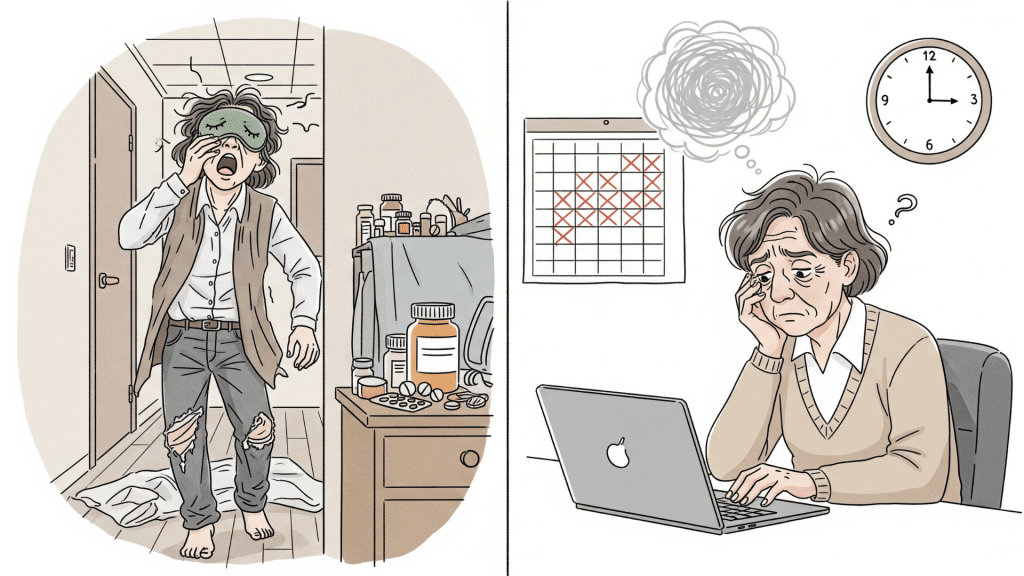
Sleeping pills may provide immediate relief, but they come with short-term and long-term risks, including cognitive impairment and dependence.
Short-Term Side Effects of Sleeping Pills
Drowsiness and Cognitive Impairment
The most common short-term side effects of sleeping pills include drowsiness and cognitive impairment, which can make it difficult to perform daily tasks, such as driving or working.
These effects can last well into the next day, impairing concentration, memory, and reaction times. This increases the risk of accidents and injuries. Always avoid operating machinery or driving until fully awake and alert.
Unusual Sleep Behaviors
Some sleeping pills, particularly non-benzodiazepines, can trigger parasomnias such as sleepwalking, sleep-driving, or even sleep-cooking. These behaviors can be dangerous and lead to accidents or injuries while the person is unaware.
Long-Term Use and Its Effects
Long-term use of sleeping pills can bring about several serious health consequences. Here’s a breakdown of the risks:
Dependency and Tolerance
Over time, the body can develop a tolerance, meaning higher doses are needed for the same effect. This leads to dependency, where individuals may struggle to sleep without the medication, making it harder to stop using it.
Cognitive Decline
Chronic use of sleeping pills can contribute to memory problems and cognitive decline. Long-term dependence may result in difficulties with concentration and memory, affecting work and daily activities.
How to Safely Use Sleeping Pills
If you decide to use sleeping pills, taking the right precautions can help reduce serious side effects and improve safety.
- Follow Prescribed Dosages: Take sleeping pills exactly as prescribed, without exceeding the recommended dose or frequency.
- Avoid Mixing with Other Substances: Do not combine sleeping pills with alcohol, opioids, or other sedatives to prevent dangerous effects.
- Use for Short-Term Relief: Sleeping pills should be used short-term to avoid dependency and long-term health issues.
- Monitor for Side Effects: Pay attention to side effects like sleepwalking or memory issues, and consult a doctor.
- Consult Your Doctor Regularly: Regularly checking in with your doctor helps in adjusting medications and finding safer sleep alternatives.
These steps can lower your risk while using sleep aids. When in doubt, always talk with your doctor to find the safest option for you.
Finding Alternatives to Sleeping Pills
There are various non-medication options available to improve sleep without relying on sleeping pills or sedatives. Here’s a quick look at some safer options:
Non-Medication Alternatives for Better Sleep
Finding non-medication alternatives can help improve sleep quality while avoiding the risks associated with sleeping pills.
Sleep hygiene is one of the most effective strategies; optimizing your sleep environment with appropriate room temperature, light exposure, and sound control can promote better rest.
Keeping a consistent sleep schedule, avoiding caffeine or heavy meals before bed, and limiting screen time also significantly improve your ability to fall and stay asleep.
Cognitive Behavioral Therapy for Insomnia (CBT-I)
Cognitive Behavioral Therapy for Insomnia (CBT-I) is a proven, non-drug treatment for chronic insomnia. It involves changing negative thought patterns and behaviors that contribute to sleep problems.
CBT-I helps individuals identify triggers for poor sleep and develop healthier habits, such as setting a consistent sleep schedule, reducing anxiety about sleep, and managing daytime naps. It’s highly effective for long-term insomnia treatment without the use of medications.
Natural Alternatives to Sleeping Pills
Natural alternatives, like melatonin and herbal supplements, are often used to improve sleep without medication.
Melatonin is a hormone that helps regulate sleep-wake cycles and can be beneficial for people who struggle with falling asleep.
Herbal supplements, such as valerian root and chamomile, are also commonly used for their calming effects and ability to promote relaxation, helping individuals fall asleep more easily. Always consult a doctor before use.
Making Informed Decisions About Sleeping Pills
Before using sleeping pills, it’s essential to consult with a healthcare professional to make informed decisions.
A doctor can evaluate your specific needs, provide guidance on the safest options, and ensure you’re taking the appropriate medication for your condition.
Discussing any underlying health conditions, such as liver disease, pregnancy, or mental health issues, is crucial, as these can affect how your body processes medications.
Professional guidance helps avoid dangerous interactions, minimizes risks, and ensures you’re using sleeping aids safely and effectively for better sleep management.
Conclusion
If you’ve been asking yourself which sleeping pill is dangerous, now you’ve got the facts to make a safer, more confident choice for your body and mind.
I talked about the risks, overdose concerns, and some better alternatives, so no matter if you’re looking for short-term relief or long-term sleep support, you’re no longer guessing.
I’ve learned that pills aren’t always the answer. Often, real change starts with small, daily habits that support healthy sleep. And if you’re still unsure what’s right for you, talking to your doctor is always a smart step.
Want more ways to sleep better without the risks? Check out my other blogs for natural tips, helpful routines, and real solutions that actually work.

